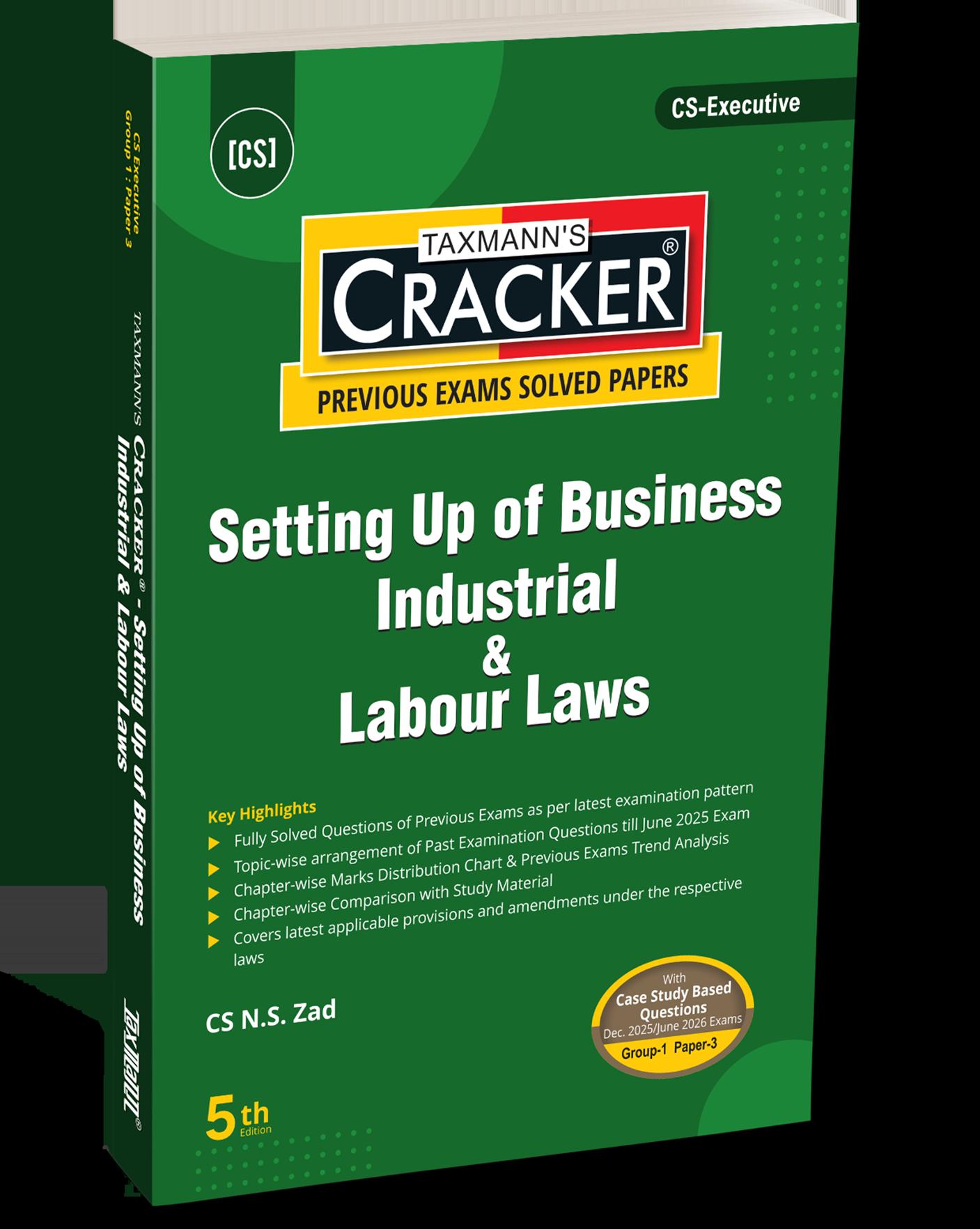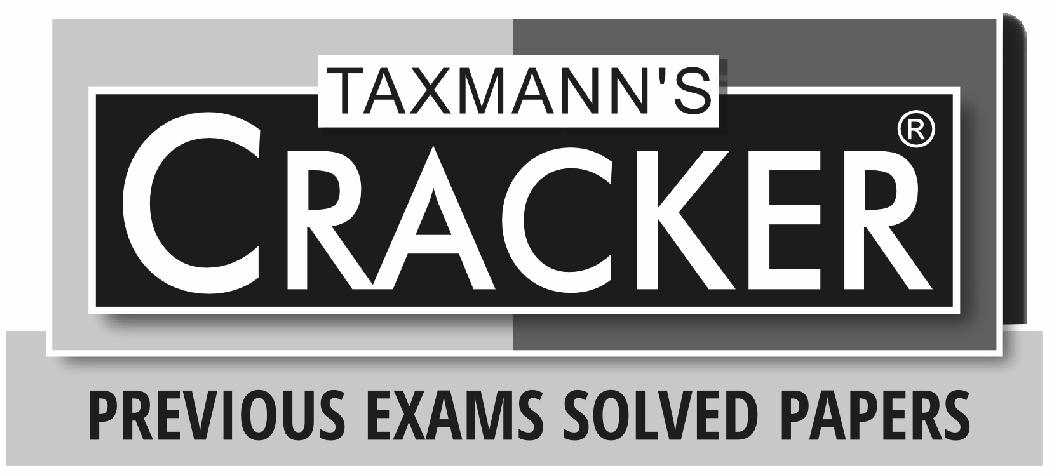SOCIAL SECURITY LEGISLATIONS
UNIT I – EMPLOYEES STATE INSURANCE ACT, 1948
1. State the applicability of the Employees State Insurance Act, 1948.
Ans.: Applicability [Section 1(4)]: The ESI Act, 1948 shall apply to all factories including factories belonging to government other than seasonal factories In case of factories belonging to government, the Act shall not apply if employees are in receipt of benefits substantially similar or superior to the benefits provided under the ESI Act, 1948.
Extension [Section 1(5)]: The Appropriate Government may after giving 1 month notice extend the provisions of the Act to other establishments. Under these enacting provisions, the Act has been extended by many State Governments to shops, hotels, restaurants, cinemas, including preview theatres, newspaper establishments, road transport undertakings, etc., employing 20 or more persons
It is not sufficient that 20 persons are employed in the shop. They should be employee as per Section 2(9) of the Act, getting the wages prescribed therein. [ESIC v. M.M. Suri & Associates Pvt. Ltd.]
Once the Act applies it continues to be applicable [Section 1(6)]: An establishment to which the ESI Act, 1948 applies shall continue to be governed by the Act even if the number of persons employed falls below the limit specified by or under the Act or the manufacturing process therein ceases to be carried on with the aid of power.
Registration [Section 2A]: Every factory or establishment to which the Act applies shall be registered within 15 days or within such period as may be specified in the regulations made in this behalf.
2. Write a short note on: Contribution under the Employees State Insurance Act, 1948.
Ans.: Contribution [Section 2(4)]: Contribution means the sum of money payable to the Corporation by the principal employer in respect of an employee and includes any amount payable by or on behalf of the employee in accordance with the provisions of the Act.
Currently, contribution is payable as follows:
- Employee’s contribution is 0.75% of wages.
- Employer’s contribution is 3.25% of wages.
PART II : INDUSTRIAL & LABOUR LAWS
3. Who are dependants under the Employees State Insurance Act, 1948? [June 1996 (5 Marks)]
Ans.: Dependent [Section 2(6A)]: Dependent means any of the following relatives of a deceased insured person namely:
(i) Widow, a minor legitimate or adopted son who has not attained the age of 25 years, an unmarried legitimate or adopted daughter,
(ii) Widowed mother,
(iii) If wholly dependent on the earnings of the insured person at the time of his death, a legitimate or adopted son or daughter who has attained the age of 25 years and is infirm;
(i) If wholly or in part dependent on the earnings of the insured person at the time his death:
(ii) Parent other than a widowed mother,
(iii) Minor illegitimate son, an unmarried illegitimate daughter or a daughter legitimate or adopted or illegitimate if married and minor or if widowed and a minor,
(iv) Minor brother or an unmarried sister or a widowed sister if a minor, or if widowed daughter-in-law,
(v) Minor child of a pre-deceased son,
(vi) Minor child of a pre-deceased daughter where no parent of the child is alive or,
(vii) Paternal grandparent if no parent of the insured person is alive.
4. Write a short note on: Employment Injury [June 1999 (5 Marks)], [Dec 2011 (5 Marks)]
Ans.: Employment injury [Section 2(8)]: Employment injury means a personal injury to an employee caused by accident or an occupational disease arising out of and in the course of his employment, being an insurable employment, whether the accident occurs or the occupational disease is contracted within or outside the territorial limits of India.
An insurable employment means an employment in factory or establishment to which the Act applies.
5. Will the injury compensation claim of X, a worker, succeed under the Employees State Insurance Act, 1948, when he suffered fracture of hands on being beaten by striking workers for working in the employers factory on his own risk despite the strike? [June 1998 (3 Marks)]
Ans.: An employee is entitled to benefits under the ESI Act, 1948 for personal injury caused to him by an accident arising out of and in the course of his employment. The facts of the case are similar to ESI Corporation Indore v. Babulal, wherein it was held that, if injury arose out of employment where a workman attending duty in spite of threats by persons giving call for strike and was assaulted (physical attack)
by them while returning after his duty was over, was employment injury. Hence, Mr. X will succeed in getting benefits under the ESI Act, 1948.
6. Mohan meets with an accident on a public road on his way to place of employment. Does it amount employment injury entailing him to benefits under the ESI Act, 1948? [June 2003 (3 Marks)]
Or
An employee was on his way to the factory. He met with an accident one kilometer away from the place of his employment. He pleaded that the injury was caused by accident “arising out of and in the course of employment” and claimed employment injury benefits under the Employees State Insurance Act, 1948. Will the employee succeed? [June 2010 (3 Marks)]
Ans.: An employee is entitled to benefits under the ESI Act, 1948 for personal injury caused to him by an accident arising out of and in the course of his employment. The facts of the case are similar to Regional Director ESI v. Francis de Costa, wherein it was held that mere road accident on a public road while the employee was on his way to place of employment cannot he said to have its origin in his employment in the factory. Therefore, Mohan is not entitled to benefits under the ESI Act, 1948.
7. A worker was injured by his negligent act while knocking the belt of a moving pulley. Does it amount to an employment injury under the ESI Act, 1948? [June 2005 (3 Marks)]
Ans.: An employee is entitled to benefits under the ESI Act, 1948 for personal injury caused to him by an accident arising out of and in the course of his employment. The facts of the case are similar to Jayanthilal Dhanji Co. v. ESI Corporation, wherein it was held that the injury caused due to negligence of employee amounts to an employment injury. Hence, worker is entitled to benefits under the ESI Act 1948.
8. Bahadur, an employee deputed by the management to participate in a football match, met with an accident resulting in his death while on his way to the playground. Is it an employment injury under the Employees State Insurance Act, 1948? [June 2007 (3 Marks)]
Ans.: An employee is entitled to benefits under the ESI Act, 1948 for personal injury caused to him by an accident arising out of and in the course of his employment.
Theory of notional extension: According to theory of notional extension of employment, in certain circumstances, an employer is liable for injury to his workman even when the employee is away from the premises at the time of injury. If the presence of the employee concerned at the particular point was so related to the employment as to lead to the conclusion that he was acting within the scope of employment that would be sufficient to deem the accident as having occurred in the course of employment.
The theory of national extension will be applied in this case and injury to Bahadur in football match is employment injury. Hence, Bahadur is entitled to benefits under the ESI Act, 1948.
PART II : INDUSTRIAL & LABOUR LAWS
9. Does the benefits payable under the ESI Act, 1948 protect employees working for wages in the Indian Air Force? [June 1998 (3 Marks)]
Ans.: The definition of ‘employee’ as given in Section 2(9) of the ESI Act, 1948 excludes only member of the Indian Naval, Military or Air Forces and not other employees working for wages.
Thus, employees working for wages in the Indian Air Force are covered by definition of ‘employee’ as per Section 2(9) and are entitled to benefits of the ESI Act, 1948.
10. Muskan Theatre is maintaining a canteen and a cycle stand through private contractors. Regional Director, ESI Corporation sent notices to the management of the theatre for contribution of the employees engaged in the canteen and cycle stand. The management contends that they are not employees but are the workmen of the contractor. Hence, the management is not liable. Will the management succeed in its contention? [Dec. 2002 (3 Marks)], [Dec. 2006 (3 Marks)], [June 2009 (3 Marks)]
Ans.: The facts of the case are similar to Royal Talkies Hyderabad v. ESIC, wherein it was held that the two operations namely keeping a cycle stand and running a canteen are incidental or adjuncts to the primary purpose of the theatre and the workers engaged therein are covered by the definition of ‘employee’ as given in Section 2(9) of the ESI Act, 1948.
Hence, theatre owner is liable as a principal employer for the payment of ESI contribution in respect of workers employed in canteen and a cycle stand.
11. Distinguish between: Principal Employer & Immediate Employer [Dec. 2009 (5 Marks)], [June 2010 (5 Marks)]
Ans.: Principal Employer [Section 2(17)]: Principal employer means the following:
(1) In a factory: Owner or occupier of the factory and includes the managing agent, the legal representative of a deceased owner or occupier and a person named as the ‘Manager’ under the Factories Act, 1948
(2) In any establishment under the control any Government: The authority appointed by such Government in this behalf or where no authority is so appointed the head of the Department.
(3) In any other establishment: Any person responsible for the supervision and control of the establishment.
Immediate Employer [Section 2(13)]: Immediate employer in relation to employees employed by or through him, means a person who has undertaken the execution, on the premises of a factory, or an establishment to which the Act applies or under the supervision of the principal employer or his agent, of the whole or any part of any work which is ordinarily part of the work of the factory or establishment of the principal employer or is preliminary to the work carried on in, or incidental to the purpose of, any such factory or establishment, and includes a person by whom the services of an employee who has entered into a contract of service with him are temporarily lent or let on hire to the principal employer and includes a contractor.
12. Write a short note on: Permanent Disablement & Temporary Disablement under the ESI Act, 1948. [Dec. 1995 (5 Marks)]
Ans.: Permanent Partial Disablement [Section 2(15A)]: Permanent partial disablement means such disablement of a permanent nature, as reduced the earning capacity of an employee in every employment which he was capable of undertaking at the time of the accident resulting in the disablement.
Every injury specified in Part II of the Second Schedule to the Act shall be deemed to result in permanent partial disablement.
Permanent Total Disablement [Section 2(15B)]: Permanent total disablement means such disablement of a permanent nature as incapacitates an employee for all work which he was capable of performing at the time of the accident resulting in such disablement.
Permanent total disablement shall be deemed to result from:
- Every injury specified in Part-I of the Second Schedule
- Any combination of injuries specified in Part-II, where the aggregate percentage of the loss of earning capacity amounts to 100% or more
Temporary Disablement [Section 2(21)]: Temporary disablement means a condition resulting from an employment injury which requires medical treatment and renders an employee as a result of such injury, temporarily incapable of doing the work which he was doing prior to or at the time of injury.
13. While fixing total remuneration, the employer included travelling allowance as part of the remuneration of an employee. The employee claimed that the employer has to include travelling allowance also for the purpose of payment of contribution towards ESI fund. Will he succeed? [June 2006 (3 Marks)]
Or
Visual Electronics Ltd. sells household consumer durables such as TV, washing machines, electric stoves, etc , of various manufacturers in its sales outlet. While delivering these items to the homes of the customers, it deputes its employees to install and explain the salient features of these items. It pays its employees an additional amount of defray for the actual travelling expenses. The ESIC demanded contribution on this additional payment including travelling expenses under the head ‘wages’. Is the demand of ESIC justified? [June 2012 (4 Marks)]
Ans.: ESI contribution has to be paid on specified percentage on wages. Hence, it is essential to know the meaning of wages.
Wages [Section 2(22)]: Wages means all remuneration paid or payable in cash to an employee if the terms of the contract of employment, express or implied, were fulfilled and includes any payment to an employee in respect of any period of authorized leave, lock-out, strike which is not illegal or lay-off and other additional remuneration if any, paid at intervals not exceeding 2 months but does not include:
(a) PF contribution
(b) Travelling allowance/concession
(c) Sum paid to defray special expenses
(d) Gratuity payable on discharge
PART II : INDUSTRIAL & LABOUR LAWS
Travelling allowance is specifically excluded from the ‘wages’ as defined in Section 2(22) of the ESI Act, 1948. Hence, ESI contribution is not payable on travelling allowance and contention of employee is not correct.
14. Lecktronics Ltd. is an establishment covered under the Employees State Insurance Act, 1948. The salesmen of the company were paid a commission @ 10% of the sales done by them every month. The ESI Inspector asked the employer to deposit contributions (the sum of money payable to the ESI Corporation by the principal employer in respect of an employee) in respect of commission paid. Is he justified? Give reasons. [Dec. 2012 (4 Marks)]
Ans.: According to Section 2(22) of the ESI Act, 1948, wages includes additional remuneration if any, paid at intervals not exceeding 2 months. As per the facts given in a case, company is paying commission (i.e. additional remuneration) every month; hence for the purpose of calculation of contribution, commission will form part of wages. Thus, contention of ESI Inspector is correct and justified.
15. What does medical benefit council do under the Employees State Insurance Act, 1948? [Dec. 1996 (3 Marks)]
Ans.: Constitution of Medical Benefit Council [Section 10]: The Central Government is empowered to constitute a Medical Benefit Council.
Duties of Medical Benefit Council [Section 22]: Duties of the Medical Benefit Council are as follows:
(
a) To advise the Corporation and Standing Committee on matters relating to administration of medical benefit, the certification for the grant of benefit and other matters.
(
b) To have such powers and duties of investigation as may be prescribed in relation to complaints against medical practitioners in connection with medical treatment and attendance and
(
c) To perform such other duties in connection with medical treatment and attendance as may be specified in the regulations.
16. Write a short note on: Employees State Insurance Fund
Ans.: Employees State Insurance Fund [Section 26]:
All contributions and all other money received on behalf of the Corporation shall be paid into a Fund called the Employees State Insurance Fund which shall be held and administered by the Employees State Insurance Corporation (ESIC).
The ESIC may accept grants, gifts, donations from the Central or State Governments, local authority, or any individual or body whether incorporated or not, for all, or any of the purposes of the Act.
A Bank account in the name of Employees State Insurance Fund shall be opened with the RBI or any other bank approved by the Central Government. Such account shall be operated on by such officers who are authorized by the Standing Committee with the approval of the ESIC.
17. Write a short note on: Purposes for which ESI Fund be expended under the Employees State Insurance Act, 1948.
[June 2010 (5 Marks)], [June 2012 (5 Marks)], [Dec. 2012 (5 Marks)]
Ans.: Purposes for which the Fund may be expended [Section 28]: Fund shall be expended only for the following purposes:
(1) Benefits & medical treatment: Payment of benefits and provisions of medical treatment and attendance to insured persons and defraying the charge, and costs in connection therewith.
(2) Fees and allowances of various bodies: Payment of fees and allowances to members of the ESIC, the Standing Committee and Medical Benefit Council, the Regional Boards, Local Committees and Regional and Local Medical Benefit Councils.
(3) Salaries & allowance of ESIC: Payment of salaries, leave and joining time allowances, travelling and compensatory allowances, gratuities and compassionate allowances, pensions, contributions to provident or other benefit fund of officers and servants of the ESIC and meeting the expenditure in respect of officers and other services set up for the purpose of giving effect to the provisions of the Act.
(4) Maintenance of hospitals: Establishment and maintenance of hospitals, dispensaries and other institutions and the provisions of medical and other ancillary services for the benefit of insured persons and payment of medical benefit families of insured persons.
(5) Contribution to State Government: Payment of contribution to any State Government, local authority or any private body or individual towards the cost of medical treatment and attendance provided to insured persons and where the medical benefit is extended to their families, their families including the cost of any building and equipment, in accordance with any agreement entered into by the ESIC.
(6) Costs incurred by ESIC: Defraying the cost (including all expenses) of auditing the accounts of the ESIC and of the valuation of the assets and liabilities.
(7) Costs incurred by ESI Courts: Defraying the cost (including all expenses) of Employees Insurance Courts set up under the Act.
(8) Sums under contract: Payment of any sums under any contract by the ESIC or the Standing Committee or by any officer duly authorized by the Corporation or the Standing Committee in that behalf.
(9) Sums payable under any decree, order or award: Payment of sums under any decree, order or award, of any court or tribunal against the ESIC or any of its officers or servants for any act done in execution of his duty or under a compromise or settlement of any suit or any other legal proceedings or claims instituted or made against the ESIC.
(10) Charges incurred in civil or criminal proceedings: Defraying the cost and other charges of instituting or defending any civil or criminal proceedings arising out of any action taken under the Act.
PART II : INDUSTRIAL & LABOUR LAWS
(11) Health & welfare of insured persons: Defraying expenditure within the limits prescribed, on measure for the improvement of the health and welfare of insured persons and for the rehabilitation and re-employment of insured persons who have been disabled or injured; and
(12) Other purposes: Such other purposes as may be authorized by the ESIC with the previous approval of the Central Government.
18. What are the provisions under the ESI Act, 1948 relating to payment of contribution?
Ans.: All employees to be insured [Section 38]: All employees in factories or establishments to which ESI Act, 1948 applies shall be insured under the Act.
Contributions [Section 39]: Provisions relating to payment of contribution are as follows:
(1) Contribution payable shall comprise employer’s contribution and employee’s contribution and shall be paid to the Corporation.
(2) Contributions shall be paid at such rates as may be prescribed by the Central Government. Presently rate of contribution are as follows:
- Employee’s contribution is 0.75% of wages.
- Employer’s contribution is 3.25% of wages.
(3) All contributions shall be payable for wage period.
(4) Contributions payable of each wage period shall fall due on the last day of the wage period.
(5) If any contribution is not paid by the principal employer within prescribed period then employer shall be liable to pay simple interest at 12% p.a. or at prescribed higher rate, till the date of its actual payment. However higher interest should not exceed the lending rate of interest charged by any scheduled bank. Any interest recoverable as stated above may be recovered as an arrear of land revenue
19. Who is required to pay ESI contribution?
Ans.: Principal employer to pay contributions in the first instance [Section 40]: The principal employer to pay contribution for all employees whether employed directly or through contractor. However, employer can recover from the employee the employee’s contribution by deduction from his wages.
The principal employer also has to bear the expenses of remitting the contributions to the ESI Corporation.
Recovery of contribution from immediate employer (contractor) [Section 41]: Principal employer who has paid contribution in respect of an employee employed by or through an immediate employer is entitled to recover the amount of contribution so paid (both employers and employees contribution) from the immediate employer either by deduction from any amount payable to him by the principal employer under any contract or as a debt payable by the immediate employer.
However the immediate employer is entitled to recover the employee’s contribution from the employee employed by or through him by deduction from wages.








